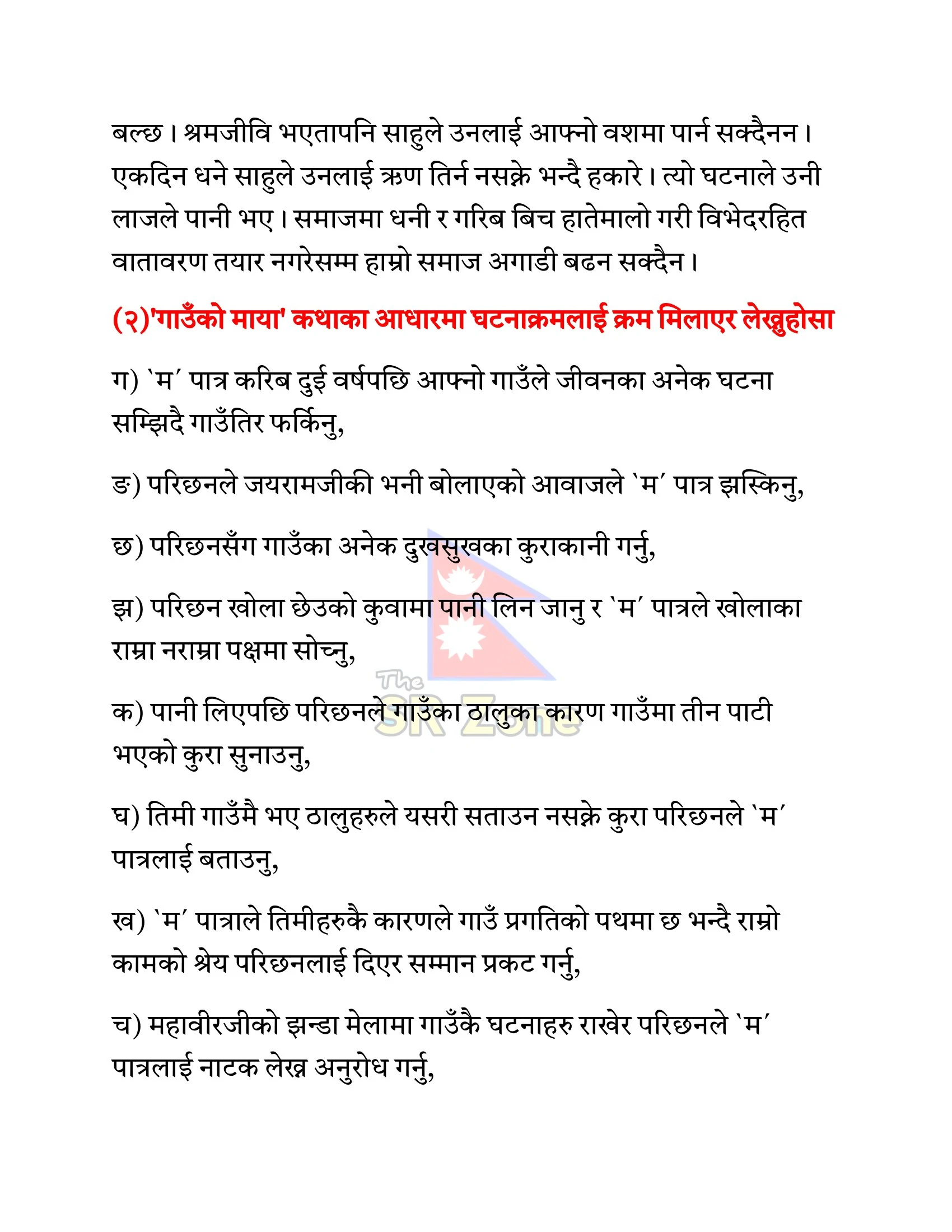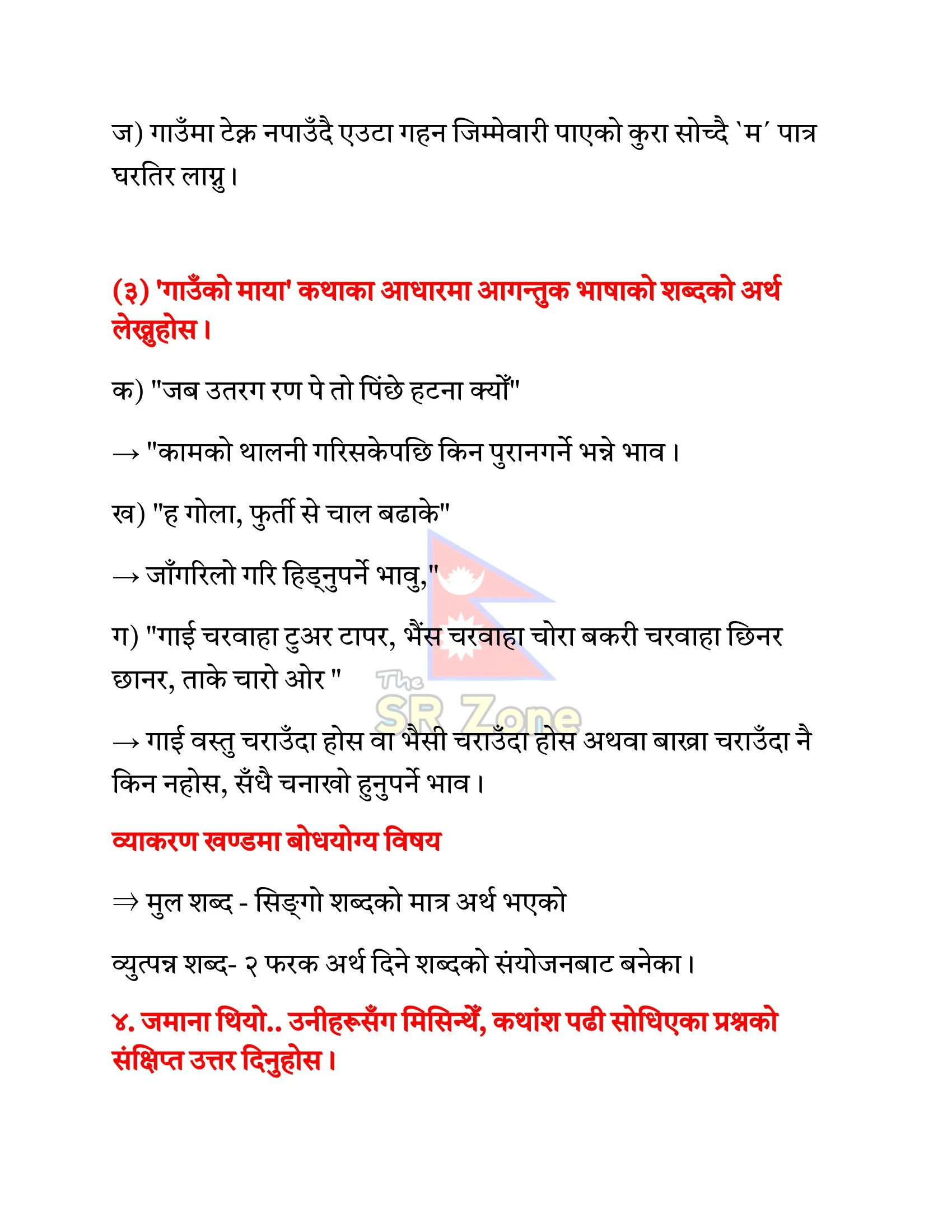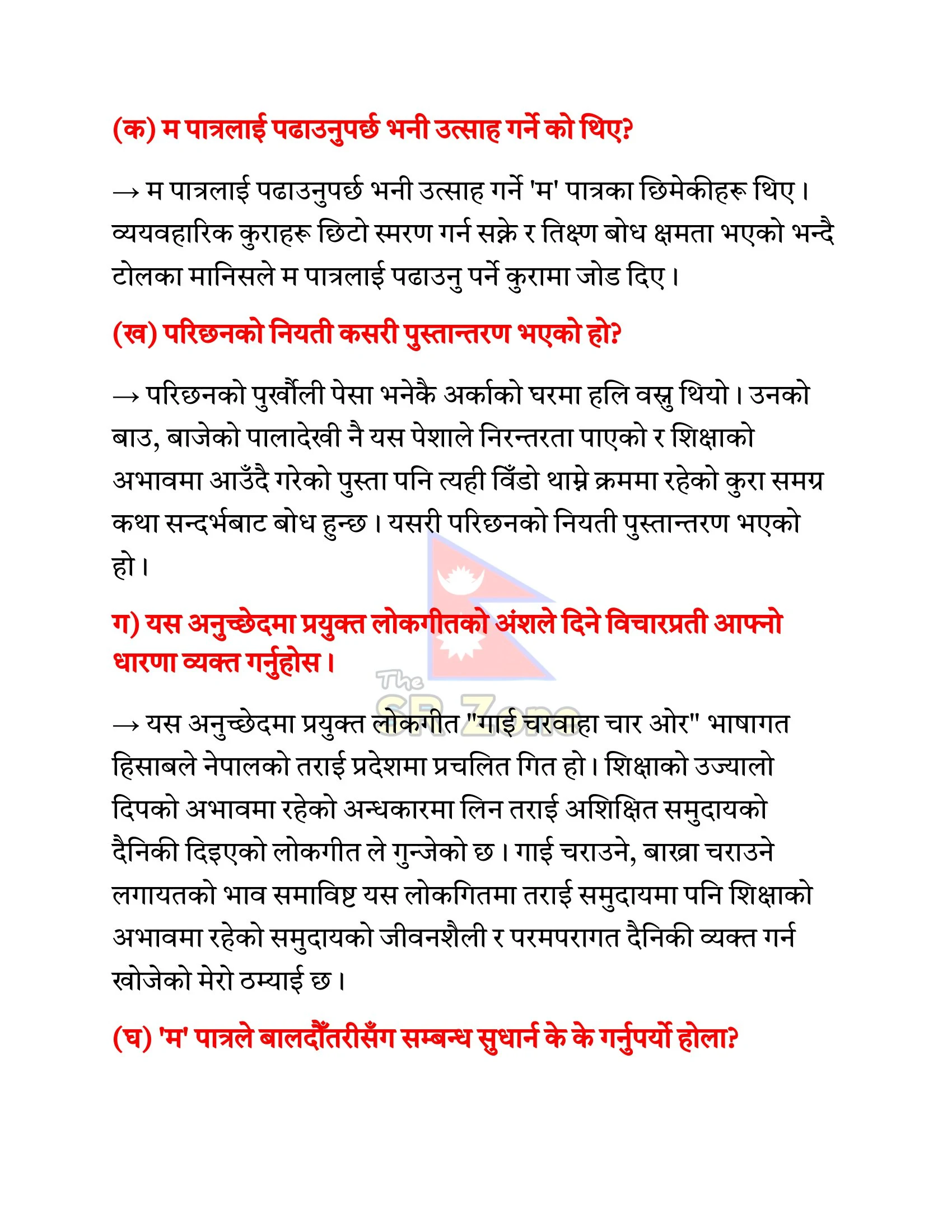Gauko Maya Exercise: Class 11 Nepali Unit 2 Questions Answers, Summary & Notes
This article includes answers to the Gauko Maya exercise, a short summary, and grammar notes to help you solve the questions in the exercise section.
Gauko Maya is a classic Nepali story by Ismali, included in Chapter 2 of the Class 11 Nepali book. The title means "love for the village," reflecting a character's deep attachment to their hometown. The story is written in traditional Nepali language.
Also Read:
- Unit 3 Sanskriti ko Naya Yatra Exercise
- Class 11 Nepali Guide Complete
- Bir Purkha Summary and Exercise
Gauko Maya Class 11 Summary
“Gau Ko Maya” is more than just a story — it’s a thunderous whisper murmuring in the dust-laden trails of the Midwest Terai. It paints a portrait of village life not in glorified terms, but with ruthless honesty, delving deep into the soul of a society cut between tradition and awakening. It revolves around Krishna, who comes back to his village after two years. His boots lack luster but radiate a heaviness— not from travel, but from a lost feeling of distance. Each bend in the road back brings back faces, memories, and a boyhood left behind.
The dialogue? It doesn’t simply advance the plot — it injects oxygen into it. Words spoken between the characters feel real, like they came from homes with mud walls and smoky kitchens. Krishna, the protagonist, bears more than a sack of salt on his shoulder; he carries the burden of change.
As he walks, thoughts swirl. Friends. Family. The scent of the fields. Laughter from riverbanks. But these memories smash into a painful reality: Class matters here. It’s a story that reflects the face of injustice. It demonstrates how the powerful — overprivileged poseurs masquerading as philanthropists — screw people over with style. The local landlords — known as Sahumahajan and Thalu — thrive on poverty. They talk softly but wield a harsh hand, under the standard old colonial policy of divide and rule.
Krishna remembers a letter. It was from his brother. Words written with longing, but with hope, and maybe a tiny bit of envy. The youth are awaking, said the letter. Villagers are questioning. They are starting to realize that life shouldn’t merely be about staying alive. That they, too, deserve dignity. The brother turns an accusing glance on Krishna, gently: “If you had stayed, maybe we could have found out more. Maybe we could’ve changed something.”
On the way home, Krishna meets Parichan, who is plowing fields the way their fathers did and their fathers before them. The plow, the soil — it all descends in generations, like an inheritance. It’s not just work. It’s a life sentence. Krishna sees it now, clearer than ever. They were children together once. Fetching water. Playing near the river. Dreaming. And yet they are here — a world apart.
The elders of the village had once picked Krishna to study because he was quick, quick to learn. He recalls their faces, their desires. “Go and make a future,” they said. But now he wonders: Was leaving really the way forward?
Sweat streams down his face as memories flood back. The scent of river water. The sensation of cool mud on bare feet. The sound of cattle bells. But the sweetness of those memories turns to bitterness when he wakes to reality — the poor, the voiceless, are still in chains. The rich have divided them, given them small rewards — a sack of rice here, a few coins there — for betraying their solidarity. It worked.
There was a strike once. All over four kilos of paddy. Everything stopped for three days. But those three days contained more fire than decades of silence. Fekan and Shanichar stood tall. They led. They believed. But leadership, too, has cracks. Daytime promises are forgotten at sunset.
The poor are left in a rut, not just of poverty but of ignorance. Lack of education, lack of unity, change is just a dream spoken in whispers. The Thalus still think the poor should wait on them. Parichans are Parichans and they will never change. That fields are where they’re supposed to be, not classrooms or offices. The rich keep the poor in hope — but hopelessness.
And yet, Krishna’s return is not pointless. Parichan stares at him with hopeful eyes. You were chosen. You studied. You know more than us. Help us. And something shifts inside Krishna. He realizes—education isn’t for escape. It’s for return. For building. For warring, not of the fists, but of the mind.
His quest is now the reverse of the Western and high-fantasy heroes who long to go home. It’s about becoming the bridge. One that links learning with life, knowledge with action. Real change, the story whispers, starts in earnest when the educated decide to come back—not to rule, but to serve. To mission their homeland.
For only the people, and only when the people, stand up together — with awareness and unity, and courage — will these chains finally be dissolved.

















